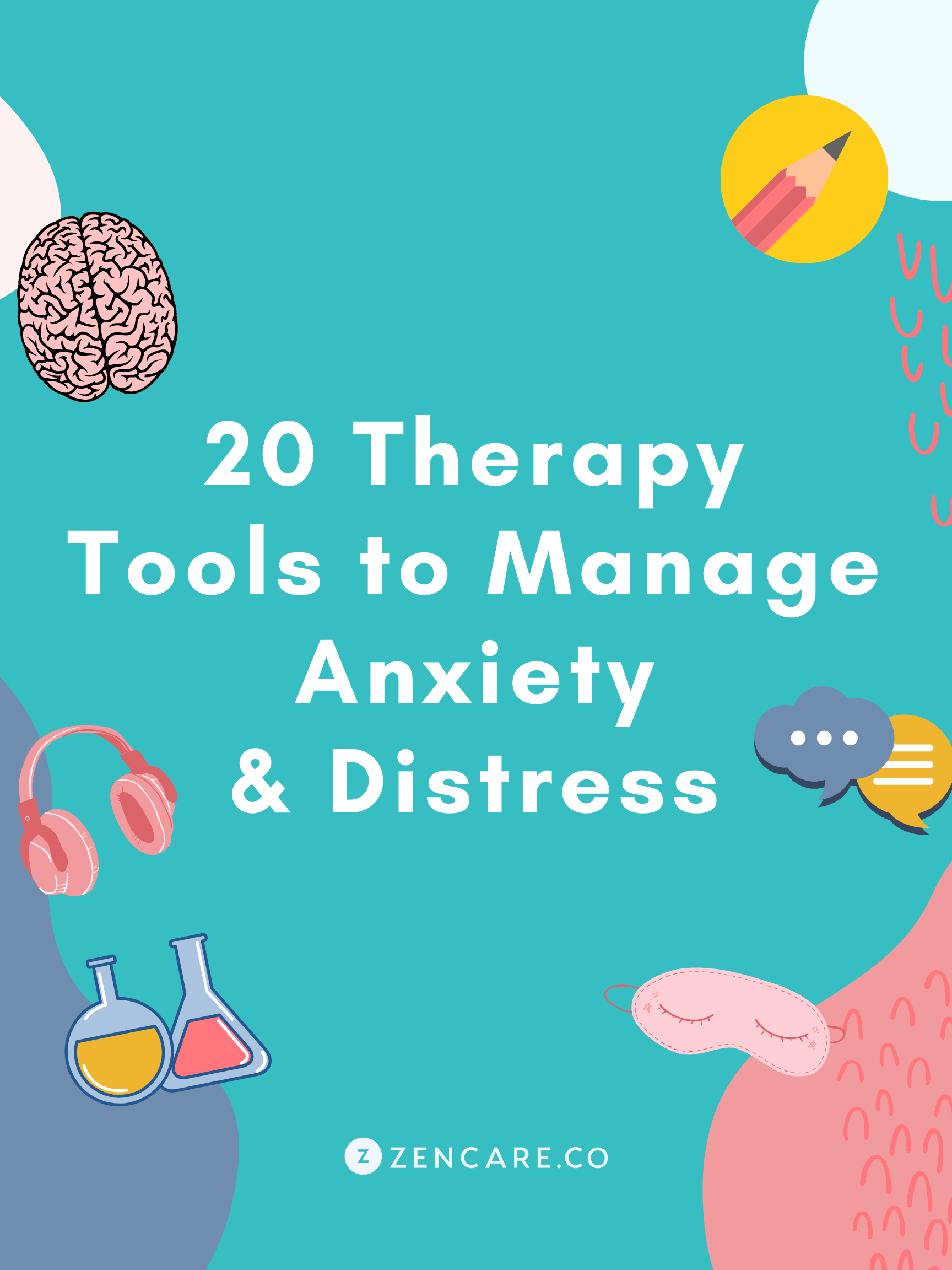Discovering Different Techniques in Counselling for Anxiety Condition for Enduring Adjustment
When taking on anxiousness problems, it's necessary to discover a variety of counseling methods. Each technique uses special understandings and devices to assist you handle your symptoms efficiently. You may discover that integrating methods can generate the most effective results. Nevertheless, recognizing the subtleties of these strategies is crucial to fostering enduring change. What if the ideal combination could release a brand-new degree of emotional well-being for you?
Understanding Anxiousness Conditions: A Short Overview
Anxiousness conditions, which affect numerous individuals worldwide, can considerably affect day-to-day live. You might experience frustrating sensations of fear or stress that appear uncontrollable. These sensations can bring about physical signs like a racing heart, sweating, or perhaps dizziness. Usual kinds of stress and anxiety disorders consist of generalized anxiousness condition, panic problem, and social stress and anxiety disorder. Each has special signs, yet they all share a tendency to interrupt your routine and relationships.Understanding the source of your anxiousness is crucial. It might come from genetics, brain chemistry, or life experiences. Identifying your triggers can help you manage your actions better. It is essential to bear in mind that you're not alone in this battle. Many individuals encounter similar obstacles, and seeking assistance is a strong action toward sensation much better. By finding out about stress and anxiety conditions, you're already on the path to understanding and managing your condition more efficiently.
Cognitive-Behavioral Therapy: Testing Negative Idea Patterns
In Cognitive-Behavioral Treatment, you'll begin by identifying the adverse idea activates that contribute to your anxiousness. You'll work on replacing them with even more positive options when you recognize these thoughts. Together, you'll construct efficient coping strategies to assist handle your anxiety in day-to-day scenarios.
Recognizing Unfavorable Thought Triggers

Recognizing the particular triggers behind your negative thoughts can be important in managing anxiety when you encounter moments of distress. Beginning by paying attention to scenarios that prompt sensations of fear or anxiety. Is it a jampacked space, a forthcoming target date, or a discussion with certain individuals? Write down these instances in a journal. This will help you recognize patterns in your reasoning. Notification physical feelings that accompany your negative ideas, like a racing heart or rigidity in your chest. By pinpointing these triggers, you gain insight right into what's sustaining your stress and anxiety. Understanding these links is the very first step in challenging those ideas and eventually restoring control over your psychological reactions.
Replacing Thoughts With Positives
Challenging unfavorable idea patterns is an essential action in changing your mindset and decreasing stress and anxiety. You might usually find yourself caught in cycles of insecurity or devastating thinking. Rather than allowing these ideas dictate your feelings, method changing them with favorable affirmations or realistic options. When you assume, "I can't handle this," move it to, "I can handle obstacles one step at a time." This easy adjustment can significantly affect your mood. Consistently identifying and responding to these adverse ideas assists create a healthier internal discussion. Remember, it requires time and initiative, yet regularly practicing this technique can lead to long lasting change, empowering you to face anxiety with restored confidence and durability.
Building Coping Techniques Together
Replacing adverse ideas is only the beginning of handling anxiety effectively. To create long-term adjustment, you need to build coping strategies that encourage you. Cognitive-Behavioral Treatment (CBT) helps you identify and test those unhelpful thought patterns. With each other, you and your therapist can discover exactly how these thoughts influence your sensations and behaviors.Start by establishing useful techniques, like journaling or mindfulness exercises, that permit you to face stress and anxiety head-on. When you face your anxieties progressively, you'll discover to respond differently.

Mindfulness and Acceptance-Based Approaches: Cultivating Present-Moment Recognition
As you navigate the intricacies of stress and anxiety, incorporating mindfulness and acceptance-based methods can considerably enhance your capability to cultivate present-moment recognition. By concentrating on the below and now, you'll locate that you can observe your thoughts and sensations without judgment (Counseling services for anxiety). This method aids you recognize your anxiety without feeling overwhelmed by it.Engaging in mindfulness workouts, such as deep breathing, body scans, or directed meditations, enables you to ground on your own in your current experience. Acceptance-based techniques motivate you to welcome your feelings rather than combat against them. When you approve your sensations, they shed their power over you.Incorporating these practices into your daily routine can transform exactly how you react to anxiousness. You'll create resilience and learn to navigate difficult circumstances with better convenience. Inevitably, growing present-moment recognition lays the structure for long-term adjustment, empowering you to lead a more fulfilling life
Direct Exposure Therapy: Confronting Fears Slowly
Exposure therapy assists you challenge your fears in a gradual method, making it much less overwhelming. You'll discover techniques to deal with anxiety-provoking situations detailed, while also building coping approaches to handle your responses. This strategy encourages you to take control and decrease anxiousness over time.
Progressive Exposure Techniques

When facing anxiousness, slowly confronting your concerns can be a powerful method to regain control. This method, called steady exposure, includes gradually subjecting on your own to the circumstances or things that trigger your anxiousness. Start with much less challenging scenarios and slowly function your way approximately more tough ones. For instance, if you hesitate of public speaking, you may start by speaking before a mirror, after that advance to sharing thoughts with a friend, and ultimately resolve a little team. Each action aids desensitize you to the worry, building your confidence with time. Keep in mind, it's important to pace on your own and celebrate tiny success as you move via this process, reinforcing your capability to take care of stress and anxiety successfully.
Structure Coping Methods
Structure reliable coping approaches is essential for handling stress and anxiety, particularly as you challenge your concerns progressively - Counseling services for anxiety. more One effective technique is direct exposure therapy, where you look at this website start by facing your fears in a regulated fashion. Start with much less frightening scenarios and gradually work your way up to more challenging situations. This progressive exposure assists desensitize you to anxiety activates, making them much less overwhelming.Incorporate leisure techniques, such as deep breathing or mindfulness, to relax your mind throughout direct exposure. Track your development, celebrating small victories along the road to boost your self-confidence. Bear in mind, it's all right to take your time; the objective isn't perfection but steady renovation. By constructing these approaches, you'll equip yourself to navigate anxiety and embrace life extra totally
Psychodynamic Treatment: Discovering Origin Reasons of Anxiety
Psychodynamic therapy discovers the subconscious mind, exposing the source of your anxiousness. By examining your thoughts, sensations, and past experiences, this strategy assists you uncover underlying problems and unsettled issues that might add to your existing stress and anxiety. You'll function with a therapist to investigate youth experiences, partnerships, and emotional patterns that form your reactions today.As you obtain insight right into these deeper layers of your subconscious, you'll start to acknowledge how previous occasions influence your existing behavior. This understanding can cause catharsis, allowing you to refine emotions you might have suppressed.Through the restorative connection, you can also determine defense reaction that might have developed gradually, offering a clearer course to change. Eventually, psychodynamic treatment furnishes you with the devices to resolve your stress and anxiety at its core, advertising long-term improvement in your emotional wellness.
Integrative and All Natural Approaches: Integrating Strategies for Greater Efficiency
Integrating different restorative strategies can enhance your journey toward taking care of anxiousness much more successfully. By incorporating elements from cognitive-behavioral therapy, mindfulness techniques, and holistic techniques, you can create an individualized technique that resolves your unique demands. You may utilize cognitive-behavioral methods to challenge negative thought patterns while incorporating mindfulness workouts to ground on your own in the existing moment.Additionally, discovering alternative methods such as yoga or meditation can promote relaxation and minimize stress and anxiety signs. This blend allows you to create better self-awareness and resilience.Experimenting with these varied techniques can aid you uncover what reverberates most with you. Remember, it has to do with locating a synergy that works, as opposed to adhering to a single method. This integrative method not just uses instant relief however likewise cultivates long-term skills for handling stress and anxiety, empowering you to reclaim control over your life.
The Duty of Support Solutions: Structure Strength Through Link
While it may seem that taking care of anxiety is a solitary trip, having click now a solid assistance system can play an important role in your resilience. Bordering yourself with understanding close friends, household, or support teams produces a safe area where you can honestly share your experiences and sensations. You advise yourself that you're not alone in this struggle.These relationships offer motivation and can supply functional coping methods that have worked for others when you link with others. It's additionally a chance to get perspective; friends can help you see situations in a different way, minimizing feelings of isolation.Moreover, psychological assistance cultivates a sense of belonging, which can substantially alleviate stress and anxiety signs and symptoms. By leaning on your support system, you can construct resilience and deal with obstacles much more successfully. Bear in mind, reaching out for assistance signifies stamina, and it can make all the distinction in your trip towards handling anxiety.
Frequently Asked Concerns
What Are the Usual Signs And Symptoms of Anxiety Disorders?
You might experience restlessness, tiredness, problem focusing, impatience, muscular tissue tension, and sleep disturbances. Physical signs and symptoms can include quick heart beat, sweating, and shivering. Identifying these indicators early can aid you look for proper assistance and therapy.
How Much Time Does Therapy Typically Last for Anxiety Disorders?
Treatment for anxiousness conditions normally lasts anywhere from a couple of weeks to a number of months. It truly depends upon your individual needs, progress, and the strategies your specialist utilizes to help you handle your anxiety effectively.
Can Medication Be Made Use Of Together With Therapy for Anxiety?
Yes, medication can definitely be used alongside treatment for anxiousness. Incorporating both techniques commonly improves treatment performance, assisting you take care of signs and symptoms while checking out underlying issues via counseling (Counseling services for anxiety). Constantly consult your health care company for customized advice
Exist Self-Help Techniques for Managing Anxiousness?
Yes, there are a number of self-help techniques for managing anxiety. You can exercise mindfulness, participate in normal workout, preserve a well balanced diet plan, develop a regular, and utilize deep breathing strategies to help in reducing stress and anxiety symptoms effectively.
Exactly how Do I Know if I Required Professional Help for Stress And Anxiety?

Comments on “Speak with a licensed therapist for anxiety and find peace of mind”